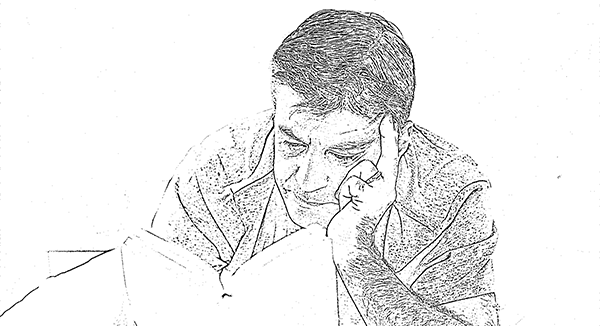“It’s not an accident that successful people read more books.”
Seth Godin said that. Sure, he may have said that because he’s the author of several bestselling business books, but there’s little doubt he’s right.
But on which books should you spend your upcoming precious reading time? Perhaps my attempt to answer that for myself could help you. Here are five books I’m looking at:
Rise of the Robots, by Martin Ford
This book just won the Financial Times and McKinsey Business Book of the Year. FT describes it as “a disturbing and often bleak analysis of the automated future of work.” In fact, the book’s subtitle is “Technology and the Threat of Mass Unemployment.” Apparently leaders everywhere are losing sleep over it.
Of course, this is the kind of book you read not to feel good or get inspired, but to learn about the forces shaping the future so you can prepare appropriate strategies—both for your business and your personal life. With a daughter about to have her first birthday, I’m eager to dive in, but also dreading it. Fortunately, the next book on my shortlist is intended as an antidote to Rise of the Robots.
Abundance: The Future Is Better Than You Think, by Peter Diamandis and Steven Kotler
In his roundup of 16 Books That Will Make You a Better Entrepreneur for 2016, John Rampton describes this book as “a feel-good and visionary book that explores why the future is going to be great thanks to technology.”
Just like I often have to watch a comedy right after an intense thriller or horror flick, I’ll have Abundance on hand after I finish the Robots book.
The Road to Character, by David Brooks
Bill Gates reads a book a week—a pretty compelling proof point for Seth Godin’s remark about successful people reading more. Of the dozens of books he’s read so far this year, Gates handpicked the best five to review in his annual book blog post.
He included The Road to Character because it offered “deep insights into human beings.” As Gates puts it, Brooks “argues that American society does a good job of cultivating the ‘résumé virtues’ (the traits that lead to external success) but not our ‘eulogy virtues’ (the traits that lead to internal peace of mind).”
Gates says the book gave him lots to think about, which is enough for me to put it on my shortlist.
The Dip: A Little Book That Teaches You When to Quit (and When to Stick), by Seth Godin
I’ll give Seth another nod today by including his most recent book on my list. A couple reasons for this. For one, I’m fond of the counterintuitive, and this book’s premise is “The old saying is wrong—winners do quit, and quitters do win.” For another, it’s 96 pages. Any book under a hundred pages gets extra points from me.
Creativity, Inc.: Overcoming the Unseen Forces That Stand in the Way of True Inspiration, by Ed Catmull
Last on my list is a book by Pixar co-founder, Ed Catmull and Amy Wallace, which Forbes says is “one of the best reads on creative leadership.” As David Slocum in Forbes writes: “Reading Creativity, Inc., one can easily appreciate Catmull’s gifts as a leader whose style—deft, open, humble, caring, trusting, purposeful—has built, shaped, and sustained an exceptional creative culture. At the same time, his account of Pixar’s ongoing success demonstrates the importance of having brought creative analysis and implementation to the dynamic complexity, of shifting markets and changing technologies, facing all organizations today. That combination of effectively bringing creativity to his leadership challenges and leadership to his firm’s creative work is rare.”
Happy reading.

